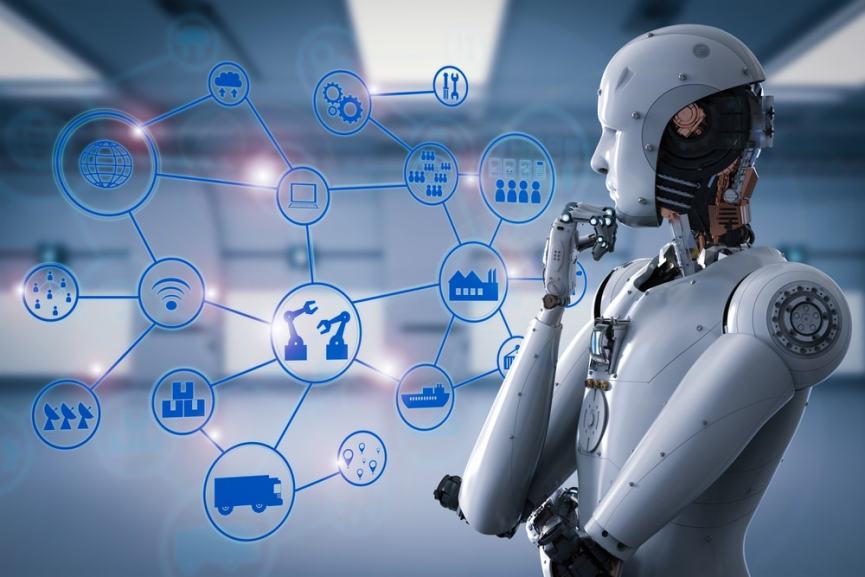Towards the Future
Understanding how Blockchain creates business significance is essential for organizations to identify the right uses and move beyond small pilots to widespread adoption.
What Blockchain is
In 2008 the world was introduced with a revolutionary concept, that’s when Bitcoin was invented – the first Blockchain platform. Blockchain at its core is a peer-to-peer distributed ledger that is cryptographically secure, append-only, immutable (extremely hard to change), and updateable only via consensus or agreement among peers. Put simply, it’s a digital, decentralized ledger that records all transactions that take place across a peer-to-peer network
The key innovation in Blockchain technology is that it allows its participant to transfer assets across the Internet without the need for a centralized third party. Put simply, it is arranged in data batches called blocks that reference and identify previous blocks by a hashing function, forming an unbroken chain, hence the name. No one owns this database, so cheating the system by faking documents, transactions and other information is nearly impossible.
Finding Talented Blockchain developers are like diamonds, rare to find and expensive to get.
4 Resourceful Ways to Find Skillful Blockchain Developers
- Freelance platforms – One of the most famous global freelancing platforms – Upwork. Not just individual people but you can find even teams .
- Facebook targeting – One of the well known social media platform, not only to interact with close friends and relatives, but also find jobs and hire people. How? By setting up an ad campaign targeting the developer audience.
- Coding platforms – Meet Github! A cloud based, hosting platform for open source (OS) developers, who use it to host and share code based on open source frameworks and technologies, like Blockchain. It is a must for every respectable developer to create an account and commit code on Github.
- Conferences – Businessmen not only exchange their thoughts and knowledge here, but also find business partners. The best place to find out everything about your topic of interest, what other companies do and don’t in the technology sphere, and even how much everyone earns. Also companies and developers make connections between each other.
Fascinating in several possible ways as it can actually improve lots of spheres. Although so much unknown about it, yet so amazing! We believe it will make our world a better place.
So let’s change the world together.
Artificial Intelligence
AI is a compilation of technologies—from machine learning to natural language processing allowing machines to sense, comprehend, act and learn. There is no start or end, just a blend of tools and techniques, applied to the right business problems and processes to deliver tailored, efficient and scalable experiences.
WHAT AI IS NOT
- Using machine learning to find patterns in data
- Capturing predictions in a report
- Using cognitive technologies to extract information from text, speech or images with no action
- Automate human tasks by applying pre-defined rules
WHAT AI IS
- Making intellectual, human-like decisions based on facts
- Coupling decisions with actions that either automate a human task or improve experience.
- Interpreting unique human traits like natural languages, speech patterns and images
- Mimicking human intelligence by analyzing and acting on structured data that’s machine and application generated.
AI is evolving from a mere trend to a seamless enabler of business transformation. End result – Real and sustainable benefits! Incorporating artificial intelligence into your business processes and systems is a unique transformational journey and it requires a fresh look at every case. Imagine what AI can do for you.
Next Generation HR
New forms of digital technology are transforming the ways and means of business. Organizations are moving from traditional structures and process to matrix configurations and project-focused teams, thereby accelerating the pace at which work is done. This also increases the volume of work drastically. In this era of transforming technological advancement and heightened competition, companies cannot simply hire more skilled workers to keep up the increasing workloads.
As a result, there is a dire need to utilize intelligent automation in all possible business processes; significant among them is HR. Below are some of the major areas in HR impacting people and talent management that will benefit to a great extent with the use of digitization and automation.
Talent Acquisition
 With Blockchain technology and AI chat-bots, ideal candidates can be identified by parsing hundreds of websites and HR can be relieved of the burden of vetting candidates based on the resume and social presence.
With Blockchain technology and AI chat-bots, ideal candidates can be identified by parsing hundreds of websites and HR can be relieved of the burden of vetting candidates based on the resume and social presence.
Employee wellness
Today’s young talent place greater value on work-life-balance and health benefits; Organizations now need to broaden their definition of benefits from merely providing health insurance to proactively creating a wellness promoted workplace.
Onboarding/Offboarding
Need of the hour is a digitized and automated onboarding process for a faster and smoother way to introduce employees to the organization’s core values. By automating onboarding, organizations are now eliminating the need for physical copies of all documents a new hire needs to submit, thus making it easier for the HR team as well as any other team involved in the onboarding. Reduced paperwork will cut down the time it takes to process these documents to a few hours. This will also ensure a smooth offboarding of employees who exit the organization.
Performance reviews
A profoundly manual performance appraisal process is prone to delays — from requesting an evaluation to reviewing the results. However, an automated performance appraisal process tightly integrated with a human capital management system can track employee performance on a regular basis and automatically trigger the appraisal process at the scheduled time. Regular updates will allow managers to identify gaps in performance and provide feedback, ultimately resulting in better employee engagement and satisfaction.
Payroll
With employees spread across multiple locations, automated/digitized payroll system will save work and time for the HR team while ensuring adherence to regulatory obligations and data security.
Human Capital Management
Monitoring employee progress in real time allows the HR team to effectively match the right employees to the right tasks per their skill set. Moreover, a clear view of employee skills can also result in matching more relevant training programs to the employee skill set and help close the widening digital skills gap.
As organizations move toward enabling top-notch employee experiences, the role of HR executives will be transformed. The New Digital HR will be lot more strategically placed in the organization as compared to a traditional recruitment and administration HR.

